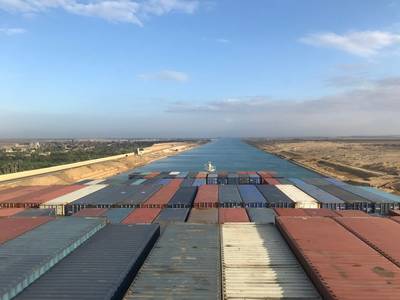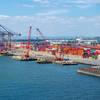Egypt's Non-oil Business Sector Hurt by Suez Canal Disruption
A downturn in Egypt's private sector activity deepened in February as a drop in Suez Canal freight due to attacks on shipping in the Red Sea worsened a long-running foreign currency shortage, a survey showed on Tuesday.
The S&P Global Purchasing Managers' Index (PMI) for Egypt slipped to 47.1 in February from 48.1 in January, remaining below the 50.0 threshold that separates growth from contraction for a 39th consecutive month.
The overall index reading was the lowest for 11 months, with new orders falling at their quickest rate since March 2023 and domestic sales slumping amid inflationary price pressures and supply-side challenges, S&P Global said.
"Egypt's non-oil economy appeared to suffer markedly in February as it found itself caught in the middle of the wider regional crisis," said S&P economist David Owen.
Inflation in Egypt slowed to an annual 29.8% in January from 33.7% in December and a historic high of 38.0% in September, according to the country's statistics agency.
In late February, Egypt's government announced a major investment deal with Emirati sovereign fund ADQ that has boosted its international bonds and eased pressure on the currency.
But as attacks by Houthi militants in Yemen cause shippers to divert shipping away from the Suez Canal, higher import costs pushed up purchase costs for Egyptian firms. The disruption contributed to the largest lengthening of supplier delivery times since June 2022, S&P Global said.
As demand shrank, companies scaled back output, with the output sub-index dropping to 44.3 in February from 46.6 the previous month.
"The pace of contraction was the sharpest in just over a year, with comments from survey panelists noting that shipping disruption and weaker tourism due to the Israel-Gaza war had also impacted activity," S&P Global said.
(Reuters - Reporting by Aidan Lewis; editing by Christina Fincher)










